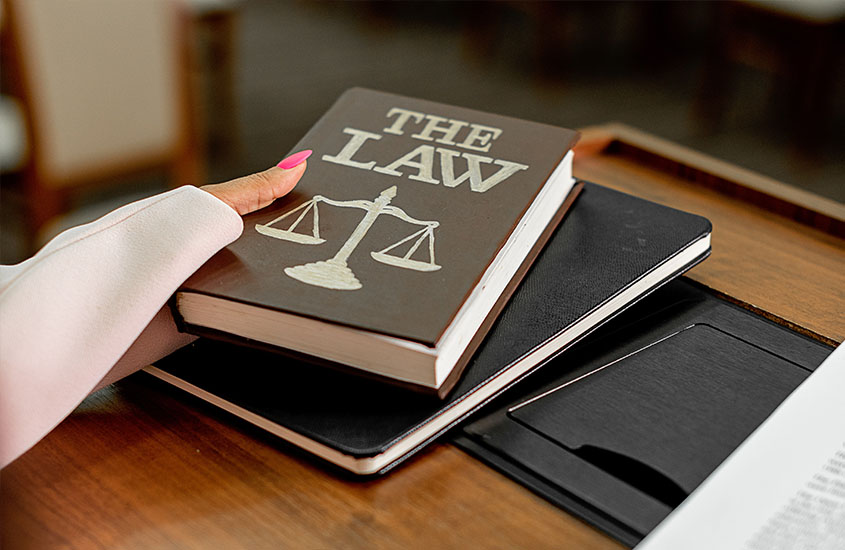Massage License Defense

Massage therapy is a profession that offers numerous benefits to both practitioners and clients. However, like any regulated field, massage therapists must adhere to licensing laws and regulations to ensure the safety and well-being of the public. Unfortunately, there are instances where a massage therapist’s license may come under scrutiny due to various factors such as client complaints, alleged misconduct, or breaches of professional boundaries. In such situations, massage license defense becomes crucial in protecting the practitioner’s professional practice and reputation.
This blog post aims to shed light on the importance of massage license defense and provide guidance on navigating the complexities associated with license investigations. By understanding the legal aspects, seeking appropriate legal representation, and building a strong defense strategy, massage therapists can safeguard their licenses and continue to provide their valuable services with confidence.
Join us as we delve into the realm of massage license defense and explore the steps necessary to protect your professional practice. Let’s ensure that the integrity and credibility of massage therapy remain intact while upholding the highest standards of professionalism and ethics.
Understanding Massage Licensing Laws and Regulations
Massage therapy is a regulated profession, and obtaining a massage license is a vital requirement for practitioners in most jurisdictions. To effectively defend your massage license, it is essential to have a solid understanding of the laws and regulations governing the field.
Massage licensing laws and regulations vary from one jurisdiction to another. It is crucial to familiarize yourself with the specific requirements in your area. Generally, these laws outline the criteria for obtaining a license, the educational and training qualifications needed, and any ongoing requirements for maintaining the license.
In many regions, aspiring massage therapists must complete an accredited massage therapy program and pass a licensing exam. Some jurisdictions may also require background checks, fingerprinting, and proof of liability insurance.
Staying updated on any changes or updates to licensing laws is essential. Regulatory bodies or agencies responsible for overseeing massage therapy may revise their regulations periodically. It is important to stay informed about these changes to ensure compliance and avoid any unintentional violations.
By being well-versed in the massage licensing laws and regulations specific to your jurisdiction, you can ensure that you meet all the necessary requirements and maintain a strong foundation for your professional practice. This knowledge will also enable you to better navigate any potential license defense issues that may arise in the future.
Common Reasons for License Investigations
Massage therapists, like professionals in any field, may find themselves facing license investigations. These investigations are initiated when there are allegations or concerns regarding a therapist’s conduct or practice. While each case is unique, there are several common reasons why license investigations may occur. Understanding these reasons can help massage therapists take proactive measures to prevent such situations and prepare if they arise.
Client Complaints: One of the most common triggers for license investigations is client complaints. Complaints may arise from a variety of reasons, including dissatisfaction with the massage experience, alleged misconduct, breach of professional boundaries, or concerns about the therapist’s behavior or ethics. It is crucial for massage therapists to maintain open lines of communication with clients, address any concerns promptly, and ensure ethical conduct throughout their practice.
Ethical Violations: Violations of professional ethics can lead to license investigations. These violations may include improper conduct with clients, inappropriate relationships, unauthorized disclosure of client information, or failure to maintain confidentiality. Massage therapists must adhere to strict ethical guidelines to safeguard their professional integrity and protect their licenses.

Criminal Offenses: Any criminal offenses committed by a massage therapist, whether related or unrelated to their professional practice, can trigger license investigations. Convictions for offenses such as assault, sexual misconduct, or drug-related crimes can significantly impact a therapist’s license and may result in its suspension or revocation.
Negligence or Malpractice Claims: Allegations of negligence or malpractice can lead to license investigations. If a client suffers harm due to the therapist’s actions or failure to provide reasonable care, they may file a complaint or lawsuit. It is crucial for massage therapists to practice within their scope of expertise, follow proper protocols. Also maintain professional liability insurance to mitigate the risks associated with negligence claims.
Seeking Legal Representation License Defense
When facing a massage license investigation, it is crucial to seek the assistance of an experienced attorney specializing in massage license defense. Having legal representation can make a significant difference in navigating the complexities of the legal process and protecting your professional practice. Here are some key reasons why seeking legal representation is essential:
Expertise in License Defense: Attorneys specializing in massage license defense have in-depth knowledge of the laws, regulations, and legal processes specific to the field of massage therapy. They understand the intricacies of license investigations and can provide valuable guidance based on their experience in similar cases. Their expertise can help you navigate the legal system effectively and increase the chances of a favorable outcome.
Protection of Rights: A skilled attorney will ensure that your rights are protected throughout the investigation process. They will guide you on how to respond to inquiries, communicate with investigators, and provide information while safeguarding your interests. By having legal representation, you can avoid making statements that could potentially be detrimental to your case.
Strategic Defense Planning: A massage license defense attorney will work with you to develop a strong defense strategy tailored to your specific circumstances. They will review the evidence, assess the strengths and weaknesses of your case, and advise you on the best course of action. They can help gather relevant documents, interview witnesses, and build a compelling argument in your defense.
Effective Communication: Attorneys are skilled in effectively communicating with regulatory boards, agencies, and investigators on your behalf. They can negotiate with the opposing party, present your case in a clear and persuasive manner, and advocate for your rights and interests. Their expertise in legal proceedings ensures that your voice is heard and your perspective is properly represented.
The Investigation Process License Defense
When a massage therapist’s license is under investigation, it is important to have a clear understanding of the investigation process. This knowledge will help you navigate the proceedings effectively and protect your rights. While the specific steps may vary depending on jurisdiction, here is a general overview of the typical investigation process:
Complaint Initiation: The investigation process often begins with the filing of a complaint against the massage therapist. Complaints can come from various sources, including clients, colleagues, or regulatory authorities. The complaint may allege professional misconduct, ethical violations, or other concerns related to the therapist’s practice.
Gathering of Information: Once a complaint is received, the regulatory board or agency responsible for overseeing massage therapy will initiate an investigation. Investigators will gather information relevant to the complaint, which may include reviewing documents, interviewing witnesses, or conducting site visits. They may also request the therapist’s cooperation and the submission of relevant records.
Interviewing Involved Parties: As part of the investigation, investigators may conduct interviews with the therapist, the complainant, and any witnesses involved. These interviews aim to gather additional information, clarify details, and assess the validity of the complaint. It is crucial to approach these interviews with transparency and provide truthful and accurate information.
Examination of Evidence: Investigators will carefully examine the evidence collected during the investigation. This may include reviewing client records, communication records, financial transactions, or any other relevant documentation. The evidence will be assessed to determine its significance in relation to the complaint and the potential impact on the therapist’s license.
Building a Strong License Defense
When facing a massage license investigation, it is crucial to build a strong defense strategy to protect your professional practice and license. Here are key steps to consider when building a robust defense:
Seek Legal Counsel: Engage the services of an experienced attorney specializing in massage license defense. They will provide invaluable guidance and expertise throughout the process, ensuring that your rights are protected and helping you navigate the legal complexities effectively.
Review the Allegations: Carefully review the allegations made against you. Understand the specific claims and charges brought forth in the complaint. This will allow you to focus your defense strategy on addressing each allegation individually and presenting counter-evidence or arguments.
Gather Evidence: Collect all relevant evidence that supports your defense. This may include client records, treatment notes, communication records, witness statements, or any other documentation that can substantiate your position. Ensure that the evidence is organized and easily accessible for your attorney to review.
Consult Expert Witnesses: In certain cases, expert witnesses can provide professional opinions or testimony that can strengthen your defense. For example, if the allegations involve a specific massage technique or treatment, consulting an expert in that area can help validate your practices and demonstrate your adherence to professional standards.
Maintain Professionalism: Throughout the investigation process, maintain professionalism in all interactions with investigators, regulatory authorities, and other parties involved. Cooperate fully, respond to inquiries promptly, and provide requested information within the boundaries of your legal rights. Displaying professionalism can positively impact the perception of your character and commitment to ethical conduct.
Conclusion
Facing a massage license investigation can be a daunting and stressful experience for any massage therapist. However, by understanding the importance of massage license defense and taking proactive measures. You can protect your professional practice and uphold the integrity of the massage therapy profession.
Throughout this blog post, we have explored key aspects of massage license defense, including understanding licensing laws and regulations, common reasons for license investigations, seeking legal representation, the investigation process, and building a strong defense. By familiarizing yourself with these topics and following the recommended steps. You can navigate the complexities of a license investigation with confidence.
Remember, seeking legal representation specializing in massage license defense is crucial. A knowledgeable attorney will guide you through the investigation process, protect your rights, and help build a strong defense strategy tailored to your unique circumstances. They will advocate for you, present your case effectively, and increase the chances of a favorable outcome.
Defending your massage license is crucial for protecting your professional practice. In the midst of navigating the complexities of license investigations, don’t forget to enjoy the convenience and refreshment of a high-quality best beverage cooler, which keeps your favorite drinks perfectly chilled, ensuring you stay hydrated and rejuvenated throughout the process.



